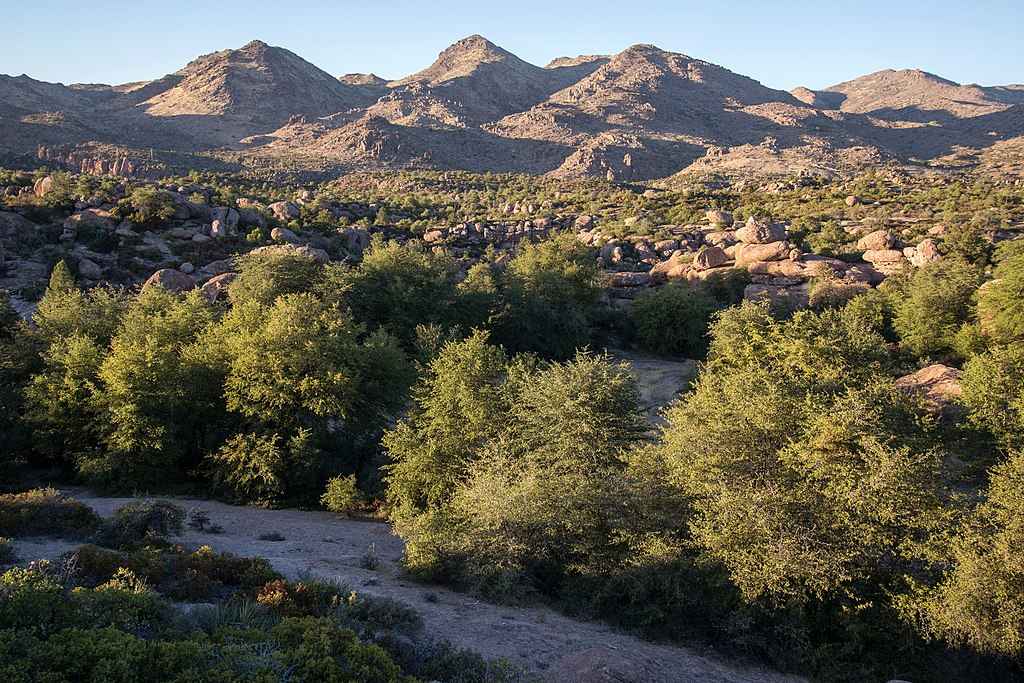A federal appeals court stepped in at the last minute to prevent a controversial land swap in Arizona. The 9th U.S. Circuit Court of Appeals issued an emergency injunction on August 18, blocking the transfer of Oak Flat to Resolution Copper just hours before the exchange was set to take place. The ruling came the night before the end of a 60-day review period for the land exchange, which has survived more than two decades of delays, legal battles and an act of Congress. Without this court action, the land would have been transferred on August 19.
The dispute centers on 2,422 acres of federal land in the Tonto National Forest, about 40 miles east of Phoenix. This land sits atop what’s described as one of North America’s largest copper reserves. The San Carlos Apache tribe knows this area as Oak Flat — or Chi’chil Bildagoteel in the Apache language. Tribal members consider it sacred ground, using the ancient oak groves for prayer, ceremonies and burials.
The land transfer was first approved by Congress in 2014 as part of a defense bill. Under the arrangement, Resolution Copper would receive the land in exchange for 5,459 acres of private land around the state.
District Judge Dominic Lanza had previously denied requests to stop the transfer, outlining what he called “stark trade-offs” between economic benefits and religious concerns. Lanza pointed to the economic and national security benefits while acknowledging the “indescribable hardships” that would result from the permanent destruction of the Apaches’ historical place of worship. His ruling triggered an immediate appeal to the 9th Circuit.
The State Land Department also raised concerns, sending a letter to the Forest Service on August 4 objecting to the mine based on groundwater consumption and subsidence. The agency expressed particular worry about the proposed Superstition Vistas development in the southeastern valley.
Similar Posts
If built, the mine would use a technique that would leave a crater up to two miles wide and 1,000 feet deep by excavating ore 7,000 feet underground. This process would require massive groundwater pumping, potentially depleting surface waters and threatening water availability across the region.
Resolution Copper — a subsidiary of international mining giants Rio Tinto and BHP — estimates the mine would generate $1 billion a year for Arizona’s economy and create thousands of jobs. The project has support in nearby mining communities.
Environmental groups and tribal representatives welcomed the court’s decision. “Everyone who loves Oak Flat and who’s been fighting for years to save it can exhale for now,” said Russ McSpadden, Southwest conservation advocate at the Center for Biological Diversity.
“The appeals court rightly understood the important issues at stake,” said Roger Flynn, attorney for the groups challenging the land exchange. “There is too much at stake to rush forward with this ill-advised give-away of our priceless public lands.”
Maria Dadgar, executive director of the Inter Tribal Association of Arizona, stated: “We believe that the health of our people correlates with the health of the land, the water and the environment that surrounds us.”
The emergency injunction means the three separate lawsuits challenging the land exchange can proceed before any transfer takes place. The case highlights ongoing tensions between economic development, environmental concerns, and the protection of Indigenous sacred sites.
The emergency injunction means the three separate lawsuits challenging the land exchange can proceed before any transfer takes place. The case highlights ongoing tensions between economic development, environmental concerns, and the protection of Indigenous sacred sites.



















